How data and process management automation solves business problems
Successful completion of business tasks depends on the ability to store and organize large volumes of information. That’s what data and process management automation does.
Today we’ll talk about how IT systems help businesses at different stages of their growth and which experts deal with digital tasks. We’ll also share how the BYYD platform uses databases in its work.
Data – is a record of facts and events that appear when people, companies, and machines interact with each other. Each company chooses the tools that they need for its work.
For example, some managers may be interested in data about customers, and others – information about the behavior of employees.
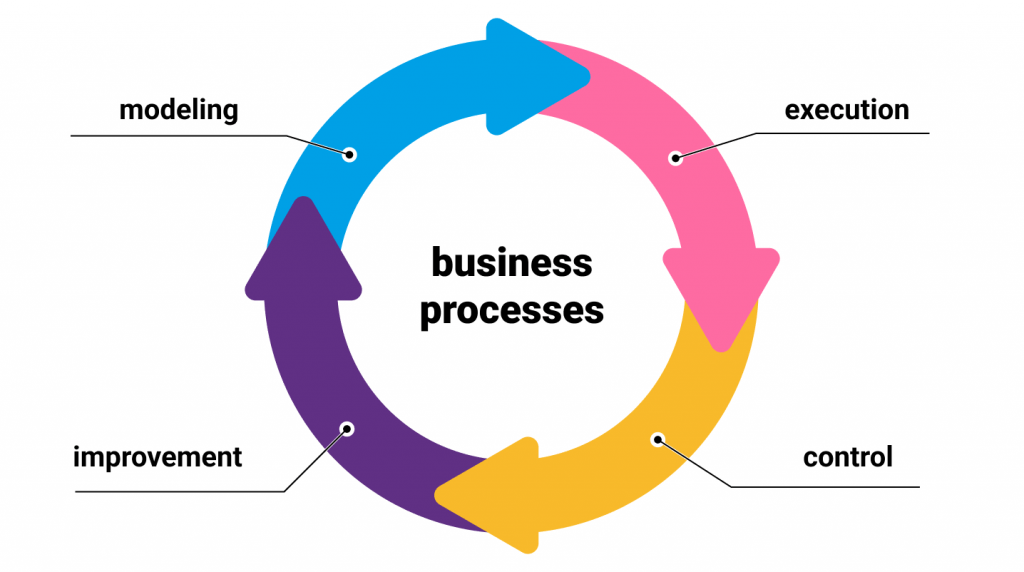
Using Excel spreadsheets can be a convenient and functional way to structure information. However, when the amount of data exceeds several hundred thousand rows, even the most well-organized table cannot solve the problem of systematization.
Here arises the need for databases.
Databases – a set of organized information that is stored electronically.
- Databases allow to process, store and structure more information than tables.
- The remote access and query system allows many people to use the databases at the same time – it makes the work process more organized and secure.
- The volume of information in databases can be huge without affecting the speed. By comparison, in Google Charts, after a few hundred lines, the page loading is very slow.
Why businesses need to store data
As global digitalization is rapidly changing companies, new models for consuming and storing large amounts of information are being developed. Digital solutions can be selected for any business function today to simplify, speed up and improve the process of data collection, and thus increase the manageability of the company.
Now properly implemented and configured IT systems are one of the main components of the development and growth of the company.
Some data solve problems for more than just one company. If the information is valuable to others in the process as well, there can be a mutually beneficial exchange.
54% of marketers say that the success of advertising campaigns depends on the amount and completeness of data. BYYD confirms this – in addition to the user information provided by the site, we use the data accumulated by our own DMP.
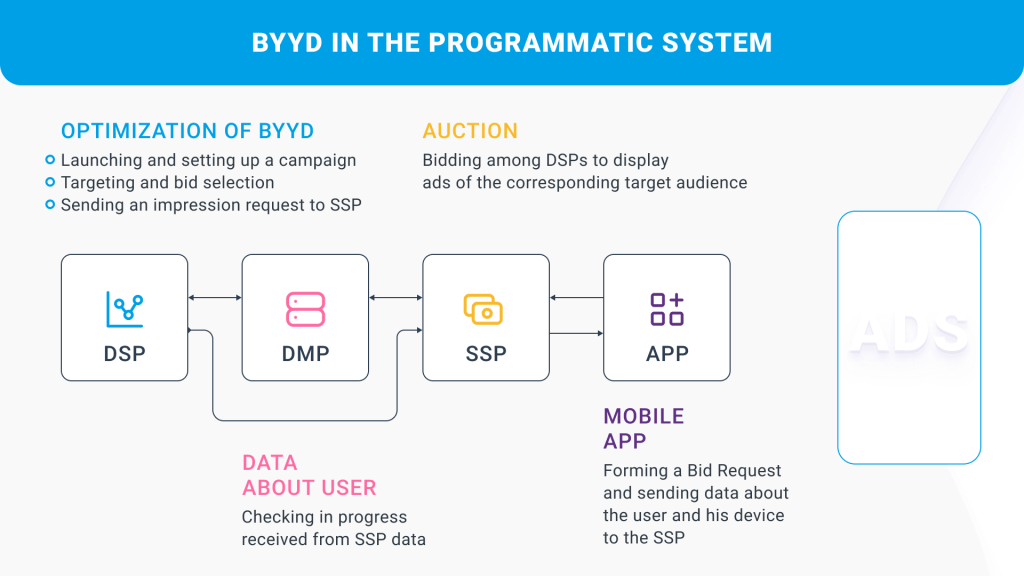
Types of IT systems and the tasks that they perform (CRM, ERM, BPM, BI)
Each organization chooses which system to implement in its working processes. The choice depends on the budget, stage of development of the company, number of employees and other factors.
The following IT systems are popular on the market:
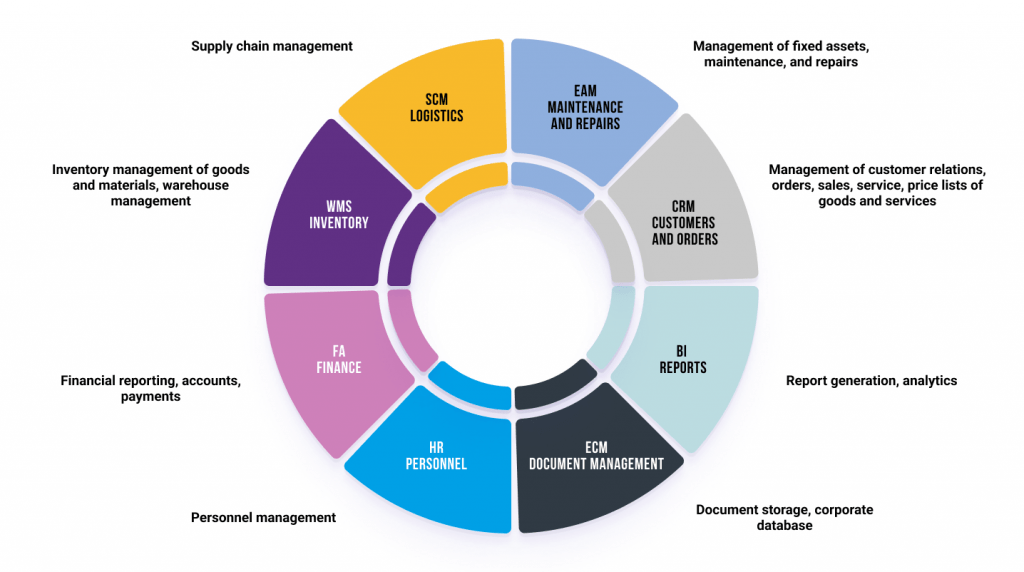
CRM (Customer Relationship Management) is a system that stores data on current and future customers (addresses, phone numbers, statuses, correspondence with them).
Since these systems contain all the information about the interaction with customers, CRM is used to form the sales funnel. Platforms with advanced functionality are also allowed to control the work of the sales department and plan transactions.
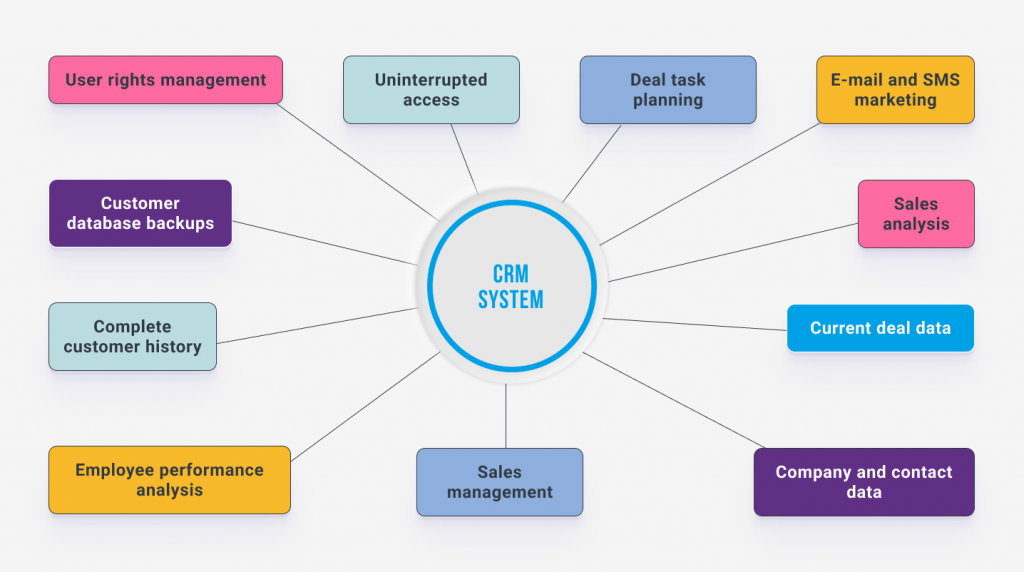
ERP system (Enterprise Resource Planning) or as it is called “the central nervous system of an enterprise”. It received this definition because most of the organization’s data is stored in it. It allows the formation of a single source of reliable information for the entire company.
ERP consists of integrated modules, each of them focused on one area of the business. Nevertheless, the modules work together, using the same data to meet the needs of the company.
For example, the finance department needs the ERP system to close its books quickly, management needs it to make timely decisions, and the sales department needs it to manage customer orders.
According to G2, “The global market for ERP solutions is projected to reach $78.4 billion by 2026, with a compound annual growth rate of 10.2% from 2019 to 2026.”
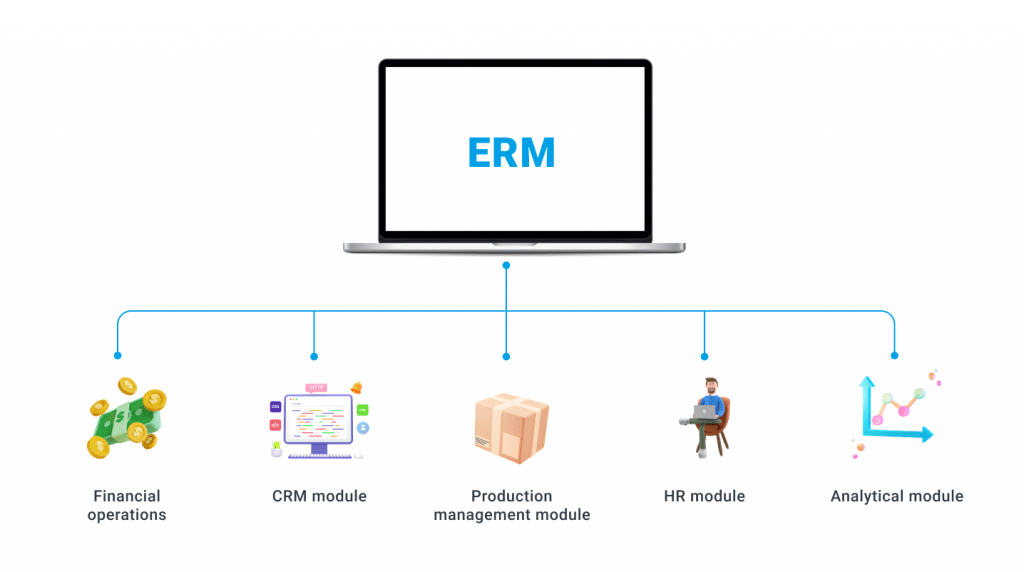
A BPM system (Business Process Management) automates maintenance and supporting business processes. It divides complex tasks into simple steps and assigns executors of these steps – responsible employees.
Due to the fact that the business processes of the company are represented in the form of schemes, it is easier for managers to control them.
The main purpose of the BPM system – to organize the work of the company. Thanks to it, employees know what they are responsible for and in what sequence they should perform their work. BMPs also reduce the number of errors, contain instructions and eliminate duplication of activities.
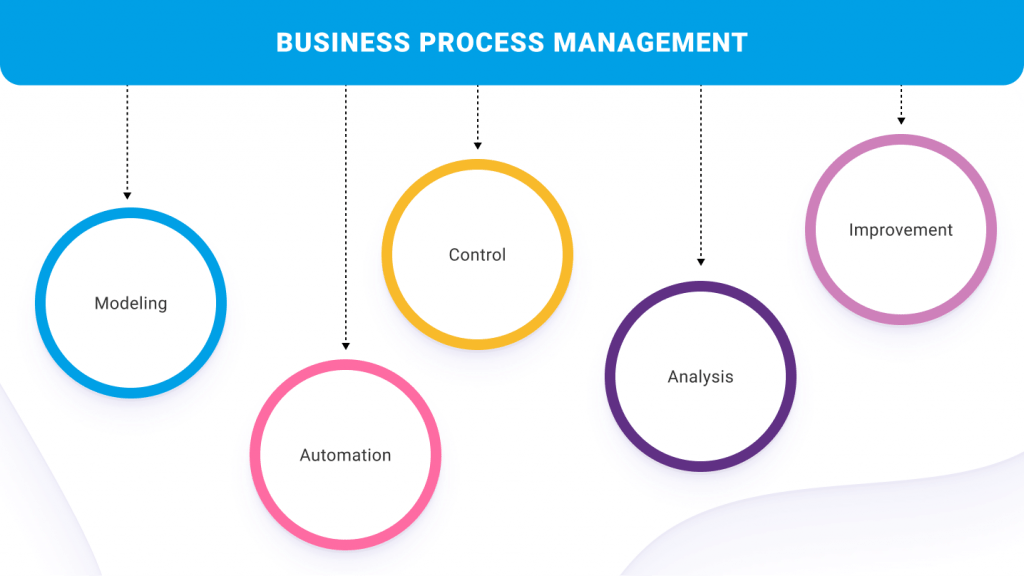
A BI system (from Business Intelligence) helps to visualize information. It collects and analyzes a large volume of company data, organizes it efficiently, and allows building reports, most often in a visual format.
Structuring, sorting information, selecting the required parameters, and visualizing all take place within a single platform.
With the help of BI solutions, it is easier for specialists to work with financial indicators, collect traffic and track sales. It also becomes easier to assess how efficient production processes are.
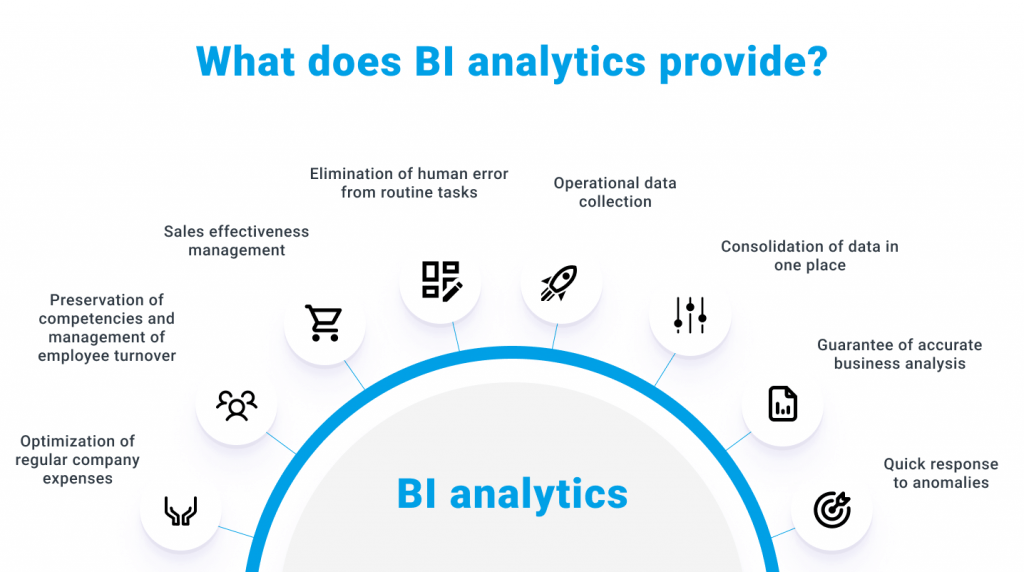
Automation and the level of business development
Data and process management automation exists for the convenience of companies. But it’s not enough to implement any system in your business – it’s necessary to choose the one that solves the problems of a particular business. For example, a local clothing store and a corporation will be different in terms of data volume and management structure.
Since working tools must match the internal processes of the organization, it makes sense to focus on the main stages of business development.
Here are the main stages of business development:
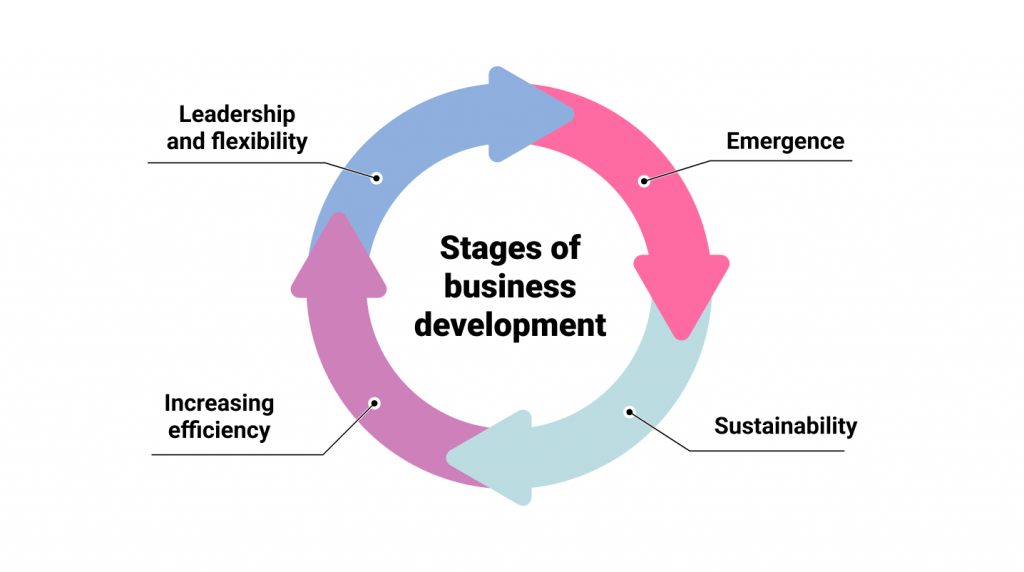
- Emergence
At the very beginning of the journey, a business tries to find its niche and create an in-demand product. This is the process of finding yourself, your customers, and your place on the market.
It’s not necessary to implement complex systems here. Verbal communication, recording information in trackers, Google or Excel spreadsheets are quite enough.
- Sustainability
When the startup stage is over and the company is successfully generating profits, one of the priorities is reliability and sustainability. At this stage, the number of personnel and tasks increases, so notepad writing loses effectiveness. Email, spreadsheets, and messengers replace note-taking.
If that’s not enough, a CRM system is implemented. But it is important to regularly monitor – whether it really makes the work easier and helps to form the sales funnel.
If the CRM-system is suitable, it must be integrated with the accounting system: this will automate business processes. By the way, most organizations forever stay in the second stage of development.
- Increasing efficiency
At this stage, the business improves operational efficiency and aims to increase profits. On the one hand the company wants to sell more, on the other – to spend less.
– A CRM system will help to sell more: it will remind a store worker when it is necessary to contact a recent client and what additional products to offer.
– BPM-system is implemented to reduce costs: it helps company managers to know the stage of a task and who is responsible for it.
If a company’s data volume has increased so much that it is difficult to analyze it, then it is time to implement a BI system.
- Leadership and Flexibility
When a business grows to the stage of dominance, it focuses on the quality of the product and wonders how to make the product better and cheaper than the competitors.
Rapid company growth requires quick growth without sacrificing productivity. That’s why there’s a need for an ERP system. It allows to increase the efficiency of human, financial, production, warehousing and other resources.
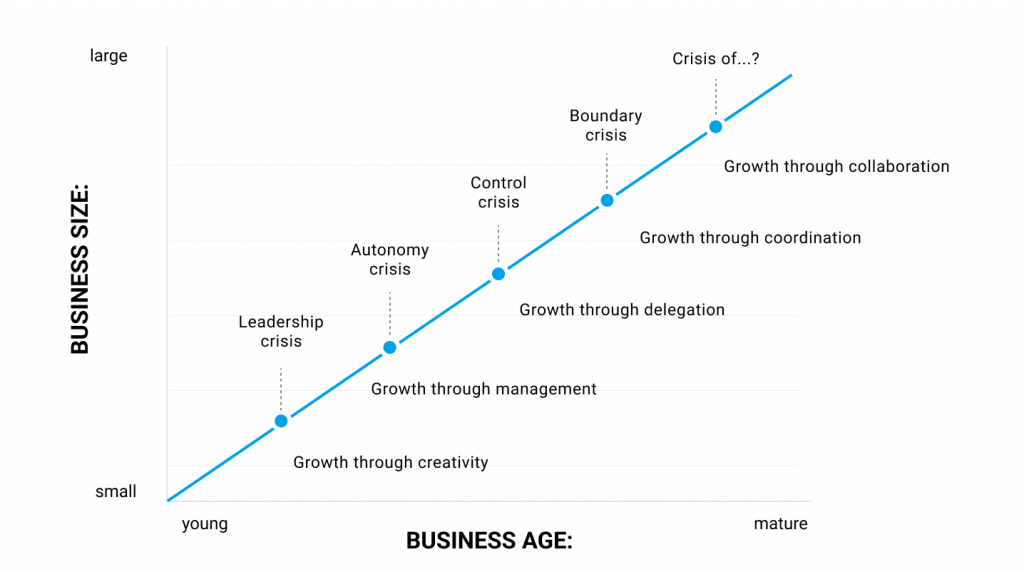
IT systems in BYYD
The BYYD platform has its own DMP (Data Management Platform). It’s a data management platform that BYYD collects and aggregates anonymized user data. This is necessary to increase the accuracy of reaching the target audience designated by the advertiser.
Thanks to using this system, we are able to implement retargeting advertising campaigns. Such campaigns are based on the collection of Device IDs of users who have seen the advertisement or have taken the required action with the advertising material.
Besides its own data, the BYYD platform has the ability to use third-party data provided by the advertiser or a third party.
IT systems specialists
The range of applications for data management systems has become wide. That’s partly because of expanding business needs and the explosive development of AI.
The people responsible for developing IT systems, making them work, and setting goals are very important here.
- The customer, in the form of a product owner, relies on the client’s request and assigns tasks to specialists based on the data – to build a model or purchase additional data.
- The data engineer prepares the data for analysts to work with in the next stage.
- Data scientists or data analysts are responsible for data analysis. Some people differentiate between these terms, while others consider them to be the same people.
- Another specialist is MLOps. They implement ideas with proven effectiveness in a specific framework and do so in a language that can be launched in the production department.
- DevOps is responsible for the operation, deployment, and configuration of tools that the entire team uses.
- Data officers are those who manage all types of data. In essence, they are system or business analysts who focus on working with data.
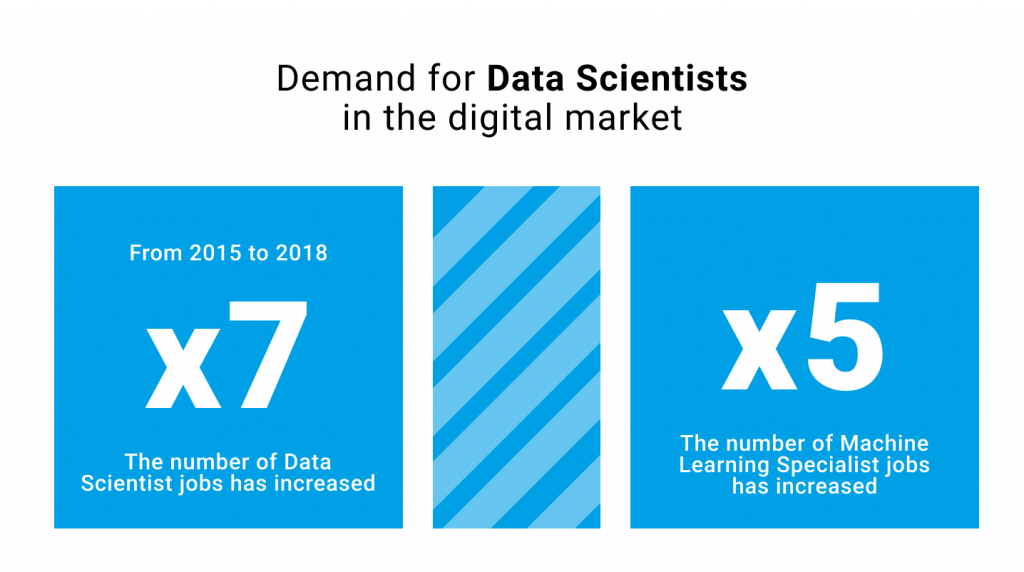
The implementation of any IT solution should address certain tasks: reducing losses, increasing productivity, or reducing the cost of production. It’s important for businesses to understand and document at which stage they are and what goals they are pursuing.
Is your business in a stage of promotion, development, and attracting a new audience? Then it’s time to implement programmatic advertising into your marketing strategy.
Register on the BYYD platform – we will help your business increase sales and significantly improve user trust in the brand.
Was it useful? Then share it with your friends and colleagues!
For consultations and cooperation You can contact us in any way:
- by phone +1 (929) 999-5737;
- or through the form on the site.